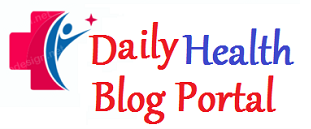Maintaining good oral health means more than just routine brushing and flossing. Many people unknowingly adhere to common myths about teeth cleaning that can undermine their dental hygiene efforts. Let’s address and debunk six prevalent teeth-cleaning myths to ensure you follow the best practices for a healthy smile.
Brushing Harder Cleans Better
One widespread belief is that brushing with more force will remove more plaque and result in cleaner teeth. On the contrary, brushing too hard damages tooth enamel and irritate gums. The American Dental Association (ADA) recommends using a soft-bristled toothbrush and gentle, circular motions. Applying excessive pressure while brushing can lead to enamel erosion and gum recession, which may cause increased tooth sensitivity and other dental issues. Gentle brushing is more effective in the long run and less likely to harm oral tissues.
Brushing Once a Day is Enough
Some people think that brushing their teeth once a day is sufficient. While brushing is better than none, brushing only once daily doesn’t adequately remove plaque and food particles. The ADA advises brushing twice daily for at least two minutes to clean teeth and prevent plaque buildup. Brushing in the morning helps remove overnight plaque while brushing before bed removes the day’s residue.
Additionally, if you use dental appliances, it’s essential to clean them properly. A dental appliance cleaner can help maintain these devices and prevent bacteria buildup, which can contribute to oral health issues if not addressed.
Flossing is Optional if You Brush Well
Many believe brushing alone is sufficient for maintaining oral health and skip flossing. However, flossing is an essential part of oral hygiene, cleaning the areas between teeth that a toothbrush cannot reach. Flossing removes food particles between teeth, preventing cavities and gum disease. Ignoring flossing means leaving up to 40% of your tooth surfaces uncleaned, leading to dental problems over time.
Whitening Toothpaste Damages Enamel
Due to its abrasive ingredients, whitening toothpaste might erode tooth enamel. However, most whitening toothpastes are formulated with mild abrasives and are generally safe for regular use. They work by polishing teeth and removing surface stains, not altering the enamel. If you have sensitive teeth or concerns about enamel health, consult your dentist. They can recommend appropriate whitening options that protect your enamel while achieving the desired brightness.
Mouthwash Can Replace Brushing and Flossing
Mouthwash is often seen as a quick fix for oral hygiene but should not replace brushing and flossing. While mouthwash can help reduce bacteria and freshen your breath, it does not remove plaque or food particles. Brushing and flossing removes plaque, which can harden into tartar if not cleaned properly. Mouthwash can be a beneficial addition to your routine, but it should complement, not substitute, thorough brushing and flossing.
Baby Teeth Don’t Need Care
Some parents might think that baby teeth are unimportant because they will eventually fall out. However, caring for baby teeth is crucial for several reasons. Healthy baby teeth help with proper chewing, speech development, and holding space for permanent teeth. On the other hand, poor hygiene causes cavities and other oral health issues that affect the growth of adult teeth. Starting good oral hygiene practices early ensures that children maintain healthy teeth and gums.
Final Thoughts
By understanding and debunking these common teeth-cleaning myths, you can better manage your oral hygiene routine and ensure a healthier smile. Adopting the correct practices, such as brushing twice daily with gentle pressure, flossing daily, and using effective oral hygiene products, will help you achieve and maintain optimal dental health. Regular dental check-ups and following these best practices prevent dental issues, keeping your smile looking its best.
